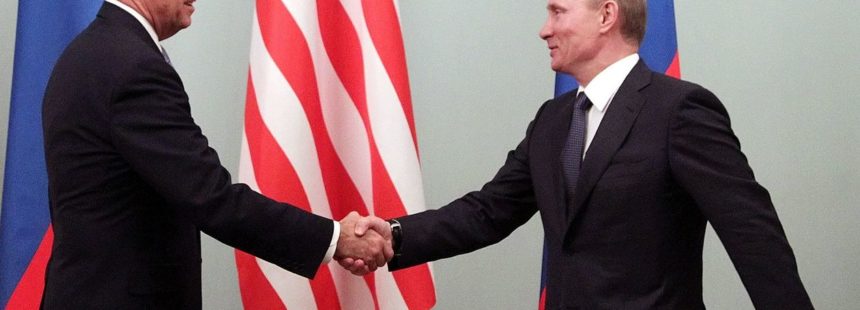

by Garry Kasparov
READ ORIGINAL ARTICLE AT THE WALL STREET JOURNAL
I was one of the Russian opposition members who met then-Vice President Joe Biden at the U.S. ambassador’s residence in Moscow on March 10, 2011. Mr. Biden arrived fresh from his meeting with Prime Minister Vladimir Putin, who, as we knew, was preparing to return to the president’s chair after lending it to his marionette, Dmitry Medvedev.
“I told Putin not to run again,” Mr. Biden said, “that it would look bad for Russia and for him.” The vice president’s expansive candor alarmed his American colleagues, who were visibly unhappy at the turn of the conversation. I broke the awkward silence and pointed out that to Mr. Putin, Mr. Biden and President Obama were beggars who had to go to Congress for every penny, while Mr. Putin could move countless billions at will. I said that Mr. Putin didn’t care about Russia or about how things looked.
When Mr. Biden was elected, I hoped he would learn from painful recent lessons and carve out a more muscular policy toward Moscow than his two feeble predecessors did. So far, my hopes and advice have done about as well as Mr. Biden’s advice to Mr. Putin in 2011. I condemned the idea of a summit between the leader of the free world and the dictator of a terrorist mafia state, a meeting now scheduled for June 16 in Geneva.
We know what Mr. Putin gets from such meetings. Without real elections, a dictator’s authority comes from his grip on power—military, internal security and economic. A summit with the U.S. president sends a message that no matter how bad things are in Russia, no matter how many sanctions the West applies, Mr. Putin is still boss.
This was further confirmed when the Biden administration waived sanctions on the Nord Stream 2 pipeline deal between Russia and Germany. The waiver was a tacit endorsement of Mr. Putin as a good investment despite the global outcry over his jailing of opposition leader Alexei Navalny, Russian assassinations in Germany and the U.K. and election interference and hacking almost everywhere else.
What we don’t know is what the U.S. gets out of the summit. History has demonstrated time and again that appeasing a dictator only convinces him you’re too weak to oppose him, provoking further aggression.
Mr. Putin is already escalating, with a new hacking attack on a U.S. agency revealed Friday and his patronage of Belarusian dictator Alexander Lukashenko. With the hijacking of a Ryanair flight and kidnapping of opposition journalist Roman Protasevich, Mr. Lukashenko put the free world on notice by showing that its norms and regulations are fragile and ill-prepared to cope with those who defy its rules.
In power since 1994, longer even than Mr. Putin’s 21 years, Mr. Lukashenko had the pleasure of quipping that he “wasn’t Europe’s last dictator anymore” in 2015 after Mr. Putin annexed Crimea and invaded Eastern Ukraine. Belarus’s brutal regime was mostly ignored until postelection protests erupted last August and were met with terrible violence.
Mr. Lukashenko’s act of piracy against an internal European Union flight is being called an escalation, but is it really? Mr. Putin’s forces in Ukraine shot down Malaysia Airlines Flight 17 with a missile in 2014, killing all 298 aboard. What price has he paid?
My focus is on Messrs. Putin and Biden because Mr. Lukashenko is a puppet of Mr. Putin, as is Bashar Assad in Syria. Without Mr. Putin’s approval and support, Mr. Lukashenko would never engage in such a brazen confrontation with Europe.
And without Mr. Putin’s backing of Mr. Lukashenko last year, the rightful president of Belarus, Svetlana Tikhanovskaya, would have swept to power. Instead she is in exile in Lithuania, where Roman Protasevich was headed before his flight was hijacked. As with his annexation of Crimea and support for Mr. Assad and his chemical weapons, Mr. Putin’s attacks are against the international order, on the agencies and alliances that maintain it.
Europe has proved helpless and hapless in defending itself and its values in the absence of American leadership. Mr. Putin’s plan of divide and conquer has worked well in Europe, where national interests always trump the EU’s toothless institution.
The U.S. needs nothing from Russia other than for Mr. Putin to cease his global campaigns of invasion, assassination, hacking and election interference. Since he won’t stop until he’s stopped, save time and effort and just ask him over Zoom if you must ask at all. I’m afraid that divide and conquer may also apply to the Biden administration, where appeasers like Obama alumni John Kerry prefer stagecraft over statecraft.
The West may summon the nerve to crack down hard on Mr. Lukashenko over the Ryanair hijacking. I wouldn’t feel safe flying over Russian airspace if Belarus isn’t punished severely, if even then. And until Mr. Protasevich is released, no dissident should feel safe anywhere.
The day after the hijacking, Mr. Biden’s national security adviser, Jake Sullivan, met with his Russian peer, Nikolay Patrushev, to lay the ground for the summit. They talked about “normalizing,” a euphemism for appeasement. Normalizing relations with a dictatorship only normalizes dictatorship. Yes, as Biden supporters are quick to say, even Ronald Reagan met with the Soviets. But he did so with concrete national- and global-security demands and from a position of strength. So far there is no such agenda for a Biden-Putin meeting.
Ten years ago in Moscow, Mr. Biden had the nerve to talk tough to Putin, but he lacked authority. Now he commands the full power of the presidency and must prove he hasn’t lost his nerve.
Mr. Kasparov is chairman of the Renew Democracy Initiative and the Human Rights Foundation.

